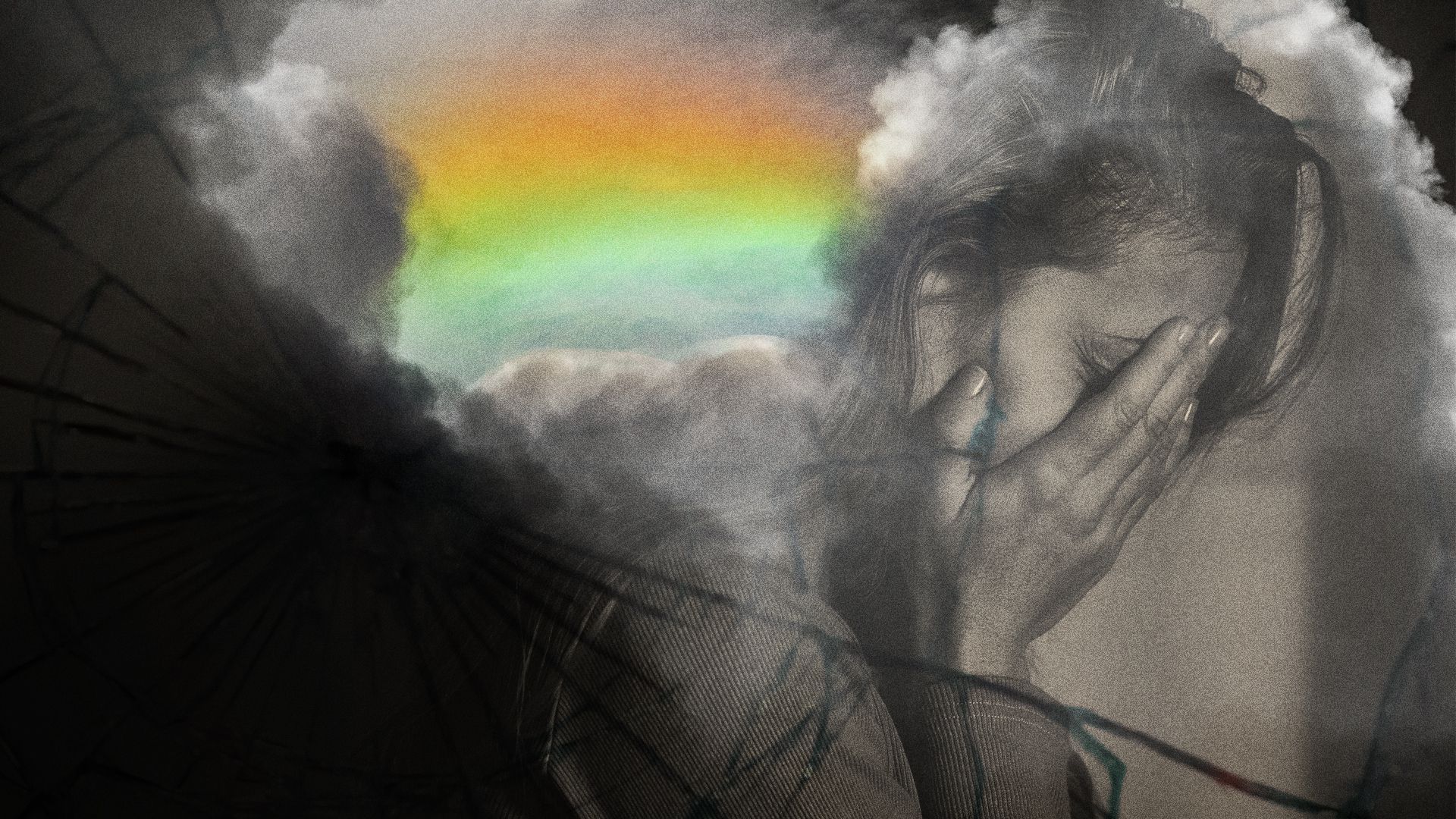
Illustration: Maura Losch/Axios
Nearly half of young LGBTQ+ Michiganders considered suicide in the past year — a reality that looms over community providers as they navigate support amid the pandemic.
Driving the news: The Trevor Project, a nonprofit, published state-by-state results of its 2022 suicide prevention survey for the first time, measuring 34,000 LGBTQ+ youth nationwide ages 13-24.
Why it matters: Barriers to access like cost and stigma prevent many young queer people from accessing mental health services, creating a perfect storm for mental health issues alongside increased isolation and pandemic-era burdens.
- Nationally, the number of LGBTQ+ youth considering suicide rose 5% from 2020 to 2022, the survey found.
What they’re saying: LGBTQ+ students had less access to in-person support like gay-straight alliances at school during the height of the pandemic, as well as more problems at home, Amorie Robinson, co-founder of the local nonprofit Ruth Ellis Center, tells Axios.
- Some youth lack family support altogether and have basic unmet needs like places to live and food.
By the numbers: 45% of LGBTQ+ youth in Michigan considered suicide in the last year and 15% attempted it, the survey showed. Those figures rise to 52% and 18% specifically for transgender and nonbinary people.
- Reports of anxiety and depression are pervasive — 76% and 59%, respectively, for all LGBTQ+ youth.
- Yet 60% of those who wanted mental health care were unable to gain access to it.
- Plus, more than a third experienced physical threats or harm.
Context: Statewide anti-LGBTQ+ rhetoric ahead of the fall election “had a real impact on LGBTQ+ youth,” Erin Knott, executive director of Equality Michigan, tells Axios.
- The organization saw an influx of referrals to resources and crisis services in the lead-up to November.
What’s happening: The Ferndale community center Affirmations hasn’t been able to offer as many youth services as it wants to because of COVID-19, community engagement manager Justin Bettcher tells Axios.
- But it does host a leadership and development program and a support group focused on people of color. Also, it brought back its in-person Pride Prom event last year and is planning arts workshops.
Plus, the Ruth Ellis Center opened a new LGBTQ+ supportive housing development in Detroit in the fall.
Reality check: The Trevor Project survey respondents were 70% white, meaning the data doesn’t fully represent the mostly LGBTQ+ youth of color Robinson works with as supervisor of outpatient therapy.
- “The fact is that it’s stressful to live in a culture that may devalue who they are and systematically creates barriers,” says Robinson.








